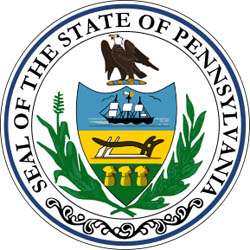In spite of increasing competition from casinos in neighboring states, gambling revenue in the state of Pennsylvania has increased for the sixth consecutive year, it was reported this week, making it second only to Nevada in state gaming income.
Pennsylvania, which is the sixth most populous state in the nation and is home to four of the largest US cities, contains 11 land-based casinos that generated $2.5 billion in slots revenue in 2012, up 2.7% from 2011’s total of $2.41 billion.
The first casino in the state opened back in 2006, which means that revenue has increased each year that gambling has been available to Keystone State residents. Gambling was legalized in the state just two years earlier, in 2004. Prior to 2010, when table games were legalized in the state’s casinos, only horse-racing, slots, the state lottery and pari-mutuel betting were permitted.
In a published statement, Pennsylvania Gaming Control Board chairman William H. Ryan Jr. observed,”While competition for gaming dollars from bordering states will continue to escalate, the revenue results from legalized casino gaming in Pennsylvania continue to be strong.”
At the present, six companies are in competition to be licensed to open the second casino in Philadelphia, including well-known gambling icon Steve Wynn. Presently there is only one casino located in the city, the Sugarhouse Casino, which opened in the Fishtown neighborhood in September of 2010 and took its name from the previous occupant of the site, the Jack Frost Sugar Refinery.
Pennsylvania’s Democratic Governor, Ed Rendell, has been looking at the possibility of introducing video poker in the state since 2009. Though the video poker issue has been a contentious one, some wonder if online poker isn’t also on the Governor’s agenda. At present time, 16,000 Pennsylvanians are employed by the casino and gambling industry.
With the popularity of gambling clearly on the rise in Pennsylvania, many in the state may be looking beyond the walls of land-based casinos at Internet gambling. Pennsylvania’s close neighbor New Jersey has already passed a bill to regulate a broad swath of online gambling options, including sports-betting and a wide variety of traditional casino games, though the legislation is currently awaiting Governor Chris Christie’s signature.
While other states, including Nevada and Delaware, have enacted legislation allowing online poker games to be offered to residents, the New Jersey bill goes a step further in offering a diverse assortment of online gambling options. With gambling revenue in the New Jersey’s iconic gambling town Atlantic City on the decline in recent years and the state hard-hit by last fall’s Superstorm Sandy, New Jersey is surely seeing regulated online gambling as a means of injecting cash into state and local coffers.
Looking forward in 2013, we will certainly begin to see more states moving toward offering online gambling, motivated not only by potential revenue, but also to prevent said revenue from crossing state lines. Even with the failure of online poker at the federal level, the coming year should be an interesting one for fans and observers of the online poker industry in the United States.

